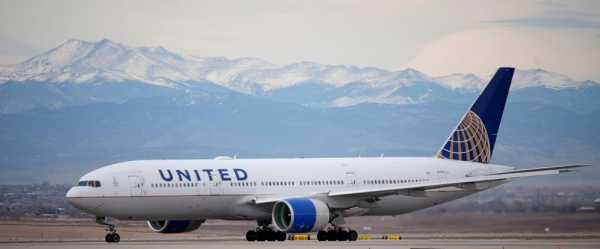
United Airlines said Tuesday that it lost $194 million in the first quarter, but its revenue soared compared with last year, and the airline said consumer demand remains strong despite economic uncertainty.
United predicted that results in the April-through-June quarter will be slightly better than Wall Street expects.
Like Delta Air Lines, which reported financial results last week, United faces much higher costs for labor and fuel than it did a year ago. Both, however, were upbeat about strong ticket sales heading into the crucial summer travel season.
“We are watching the macroeconomic risks carefully, but demand remains strong, especially internationally, where we are growing at twice the domestic rate," CEO Scott Kirby said in a statement.
That matches data from Bank of America and JPMorgan Chase, which report that their private data shows bookings slowing in recent weeks for trips within the U.S., while international flights sell briskly.
To take advantage of that international demand, United announced separately that it plans to expand service to Australia and New Zealand next winter by 40%. It will start new service or add flights on current routes from San Francisco and Los Angeles to Christchurch and Auckland in New Zealand and Sydney and Brisbane, Australia.
Patrick Quayle, a senior vice president who oversees United’s global network, said the airline will shift planes from Europe during winter, when travel between the U.S. and Australia and New Zealand is heaviest.
Investors knew that United's first-quarter loss was coming — the airline warned last month that it would lose up to $1 per share in what is the weakest travel period of the year. That was partly because of an unusual accounting decision.
United moved up money set aside for a new contract with pilots into the first quarter — even though it didn't get a deal done with the union during the quarter. The accounting move, however, loaded more costs into the first quarter, which was already going to be weak, while reducing the hit to the bottom line when there is a new contract.
It is not clear, however, when labor and management will reach a settlement.
The Air Line Pilots Association said its members, dressed in their uniforms, will picket outside the airline’s Chicago headquarters Wednesday — when executives discuss the financial results with analysts — to protest United’s "reluctance” to give them an industry-leading contract.
United's loss was much smaller than the $1.38 billion shortfall it reported in last year's first quarter, when travel was just starting to recover from the pandemic. United said that excluding one-time items, it would have lost 63 cents per share. That was slightly better than Wall Street's forecast of a loss of 73 cents per share, according to a FactSet survey.
Revenue jumped 51% to $11.43 billion, about in line with analysts' forecast of $11.42 billion.
United forecast that it will earn between $3.50 and $4 a share in the April-through-June quarter. The midpoint of that outlook is slightly higher than Wall Street’s forecast of $3.61 per share.
Shares of United Airlines Holdings Inc. rose more than 1% in extended trading after gaining 1.6% during the regular session.
United’s report echoed notes from Delta Air Lines, which said last week that it lost $363 million in the first quarter. Delta would have earned a profit without $864 million in spending related to signing bonuses for pilots, who ratified a new contract.
Sourse: abcnews.go.com






